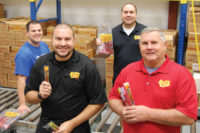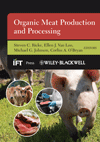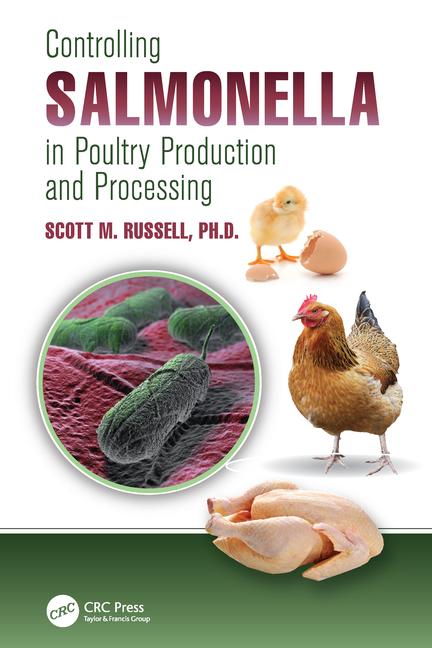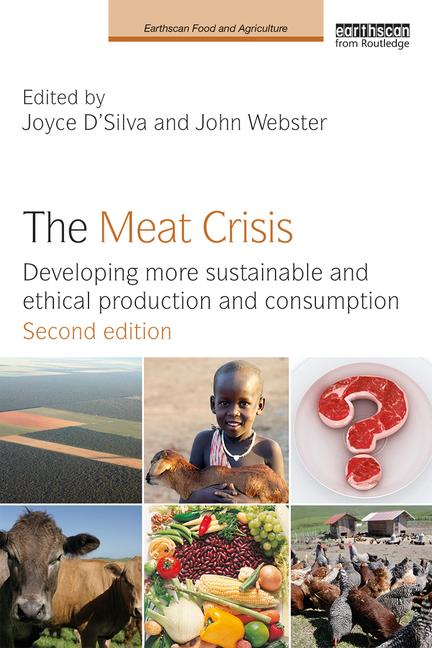Sticking with what works
Snack sticks have opened up many new opportunities for small meat processors.




When the middle of the day rolls around and hunger starts to set in, U.S. consumers have many snack options. Unfortunately, most of them bad for us. One healthy option, and one that's gaining in popularity, is the snack stick – that 1-ounce, convenient, tasty piece of beef that's low in calories but high in protein. Many small meat processors who have started their own snack stick line have quickly found out that there is a strong demand, and those small snacks can lead to big opportunities.
Tyson Wibbenmeyer of Stonie's Sausage Shop, located in Perryville, Mo., said that the company's business has grown tremendously within the last five years, and the addition of a line of snack sticks has helped drive that growth. There was a strong demand for such a shelf-stable product, he says.
“It doesn't need refrigeration, so it was very convenient for small organizations to use them as a fundraiser,” he says. “It's easier to get them on shelves in convenience stores and grocery store shelves. Convenience is a big point with consumers these days.”
The snack sticks come in a variety of flavors, including Original, Teriyaki, Sweet & Sassy, Jalapeno and BBQ. Within a relatively short time, Stonie's has expanded its “Quick Stick” sales into most of Missouri, as well as into Illinois, Arkansas and Memphis, Tenn. The company has also found a niche with local school fundraisers.
“Once we got them into cafeterias, it kind of took off,” Wibbenmeyer notes. The Quick Sticks proved so popular with students that it was only a matter of time that the different organizations and sports teams that needed to raise money began selling them, both in school and outside of school.
Cloud's Meats, located in Carthage, Mo., has been producing snack sticks for 10 years. Andy Cloud says that his company has about five varieties that he sells year-round, but he will also create limited-edition flavors to keep the demand strong. Cloud's has also been successful with using the snack sticks for fundraising activities, but when it comes to distributing them, the family decided to keep them in Cloud's retail stores.
“We decided that we just want to be reliant on ourselves,” Cloud says, adding that the company does distribute snack sticks through its private label program. “But when it comes to our name on the product, it's going to come from our stores.”
Cloud's Meats is in the process of opening up a second store in Carthage, and it also has plans for a third location in nearby Joplin next spring.
Starting Off Small
Cloud's snack sticks have come a long way since the company decided to develop the product in the first place.
“We started off making them [with] encapsulated citric acid, which is certainly the easiest way to get started on snack sticks,” he says. “We did that for about five years, and then we moved into doing the fermented product. I really think fermented is a higher-quality product, and in a small niche market as a small processor, the key is just having the highest quality you can produce.”
In terms of production equipment, he says that Cloud's started off about as small as possible, using a 50-pound piston stuffer to make the snack sticks and cutting and bagging them by hand after they had been run through the smokehouse. Since that start, though, the company has moved on to a larger vacuum stuffer, upgraded its smokehouses and acquired a rollstock packaging machine to produce the popular single-stick packages.
“It changed our business,” Cloud says of the packaging machine, “because it gave us the ability to do other things that plants our size can't do. It really took most of the competition away from us.”
Similarly, Stonie's Sausage Shop started small and gradually upgraded its production abilities. The addition of a rollstock machine was a particularly difficult one for the family, Wibbenmeyer explains.
“We had just built a new building, so we already had a lot of money invested into it. Bank payments were still high, but we felt it was the only way to go, by taking that leap,” he says.
Even though, the company waited a year before it bought the mold to make the single snack stick packages.
“It took off right away, and that's where the market was, single-pack packaging,” he says. “Once we bought the mold to do the single packs, it became very evident that it was a good investment.”
Support Structures
Both Stonie's and Cloud's are family run businesses that began operation in 1959. Tyson Wibbenmeyer is the fourth generation of his family in the business, while Andy Cloud represents the third generation of his family. The two companies are part of the Missouri Association of Meat Processors, as well as AAMP, and they credit those associations for providing help at the onset of their snack stick programs.
“Everybody has been really helpful and open,” says Wibbenmeyer.
Cloud says that the best advice he received about snack sticks came from a fellow MAMP member, who taught him about the science of snack sticks and the importance of creating a shelf-stable product.
“To get this product shelf stable, XYZ has to happen,” he says. “No one's going to give you their formulas or anything like that, but if you know the science behind it, you can guess the rest pretty easily and tweak your recipe.”
Looking for a reprint of this article?
From high-res PDFs to custom plaques, order your copy today!










